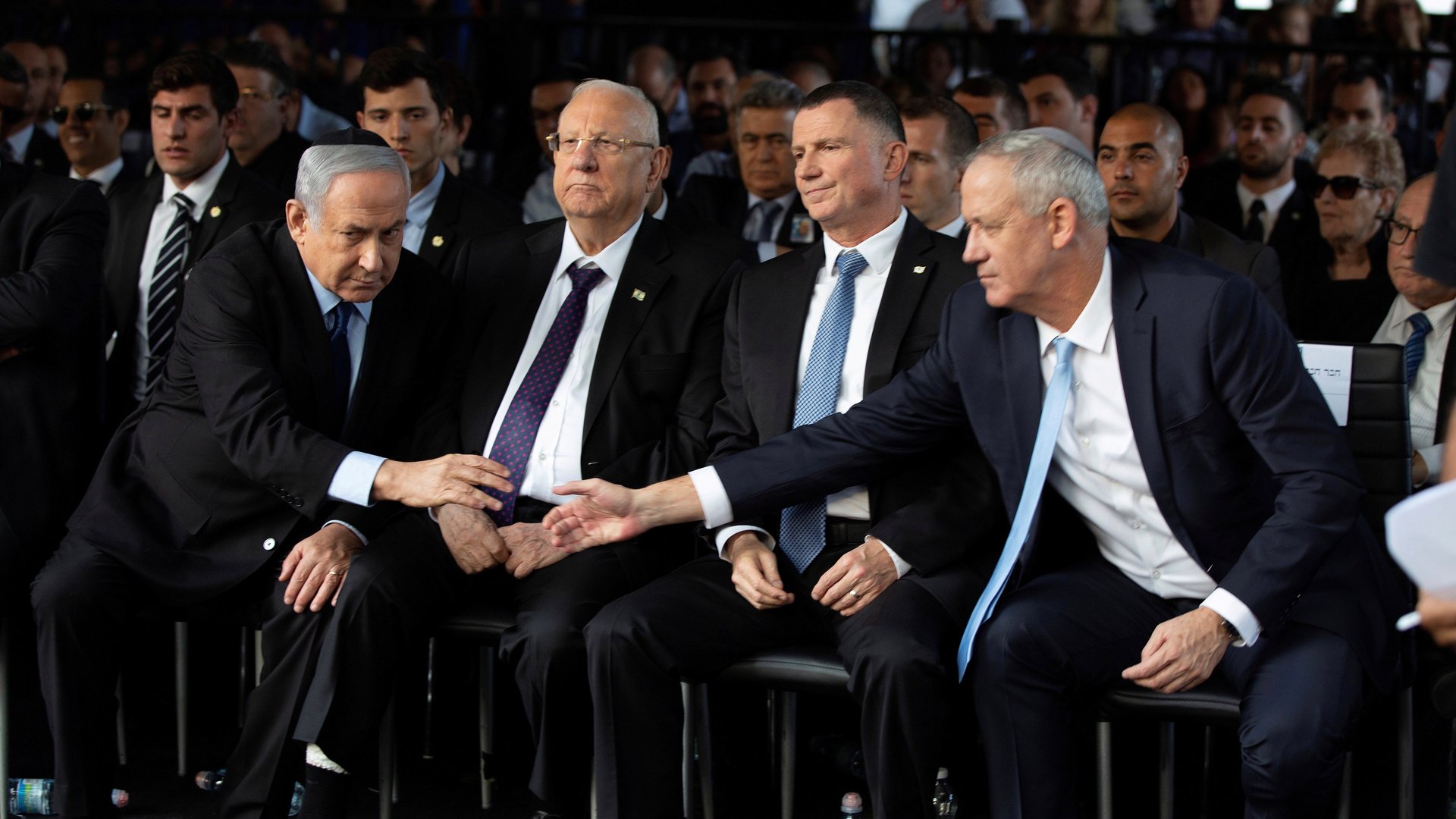The coronavirus crisis has been a huge boon to Israel’s Netanyahu
The coronavirus crisis is an epic challenge for leaders globally as they scramble to manage the spread of disease and the cessation of economies. But in Israel, for prime minister Benjamin Netanyahu at least, the arrival of this invisible enemy couldn’t be better timed.


The coronavirus crisis is an epic challenge for leaders globally as they scramble to manage the spread of disease and the cessation of economies. But in Israel, for prime minister Benjamin Netanyahu at least, the arrival of this invisible enemy couldn’t be better timed.
On March 2, Israel held elections for the third time in a year. Although Netanyahu claimed victory, the right wing leader of the Likud party in fact fell short of having the votes he needed to lead a coalition in the parliament, which is the same problem that prompted the previous two elections in quick succession. Israel’s president Reuven Rivlin pressed Netanyahu and his center-left rival Benny Gantz of the Blue-White party to work together to form a government.
All that happened about 10 days before Netanyahu was set to be tried on corruption charges. But as luck would have it, on March 15, right before the trial was to begin, the Israeli justice ministry declared that courts would be closed for all but emergency hearings due to the coronavirus crisis. The justice ministry insisted the decision was apolitical and the prime minister’s trial was reset for May 24.
Now, Netanyahu and Gantz are working together to the great chagrin of many centrists and left-leaning Israelis. Previously, Gantz said he wouldn’t form a unity government with a politician accused of corruption. Netanyahu has been indicted on charges of bribery, fraud, and breach of trust—charges he denies. However, Gantz has since changed his mind, it seems. Last week, he accepted the role of parliamentary speaker, explaining,“These are not not normal days and they call for special decisions. Therefore, as I’ve said, I intend to examine and advance, in any possible way, the creation of a national emergency government.”
Gantz’s response to an evolving emergency situation seems reasonable enough, at first glance, given the country is in lockdown and dealing with a public health crisis. The agreement between the Likud and Blue-White leaders appears to be that Netanyahu will serve as prime minister for the next 18 months, through September 2021, after which Gantz will take over his role while Netanyahu likely takes a ministerial post. Sounds fine, right?
Not quite. In 1993, the Israeli high court ruled that a criminal defendant cannot serve as a minister in the Israeli parliament. The prime minister must fire any minister who is accused of a crime. However, the ruling didn’t address the role of prime minister as defendant, which is why Netanyahu has been able to lead the nation despite being indicted. Now, Netanyahu has enlisted his political rival, Gantz, to assist him in passing legislation enabling him to serve as a minister once he steps down from the top job.
Netanyahu’s political opponents have filed challenges to the prime minister’s ability to form a government based on that same ruling barring defendants from serving as minister and they are not eager to see Gantz, who had been an anti-corruption crusader, now aiding the accused Netanyahu in creating legislation tailored to his specific circumstances. Netanyahu’s trial isn’t expected to be over by October 2021, which means he theoretically would not have been able to hold a ministerial post. Yet, with Gantz’s help, he may well serve Israel while standing trial for allegedly swindling it (Gantz’s team has refused to disclose details of their negotiations with Netanyahu).
“The word “magician” is too weak to describe [Netanyahu’s] stunning achievement,” writes Israeli political analyst Yossi Verter in Haaretz. Verter notes that the “coronavirus pandemic arrived with inconceivably perfect timing” for the prime minister.
While the situation in Israel is unique to some extent—specifically the slew of elections in quick succession and the prime minister facing a criminal trial—it’s fair to assume the political upheaval caused by the pandemic will extend far beyond its disputed borders.
Already, some US states have had to delay Democratic primaries in the presidential race, calling into question the fairness of potential results of a November election premised on abruptly halted campaigns. There are even concerns that US president Donald Trump might try to use the coronavirus crisis as an excuse to delay the elations, although he doesn’t have the legal power to do such a thing even in a state of emergency.
Poland’s deputy science minister Wojciech Maksymowicz has just called for postponement of the May 10 presidential elections there, explaining that proceeding apace during the pandemic isn’t realistic. Mksymowicz explained, “It’s nature that rules here.”
That much is certainly true. The world has been thrown into a state of chaos and the coronavirus will make it extremely difficult for activists, politicians, or voters to insist on politics as usual.